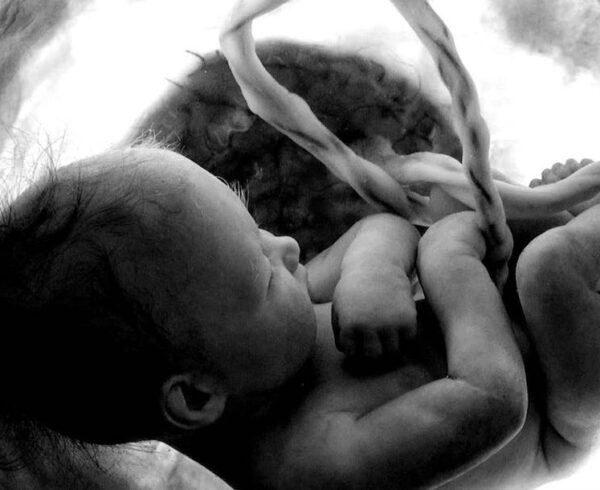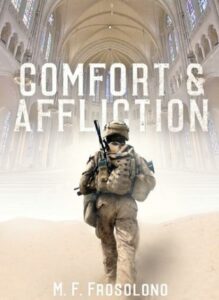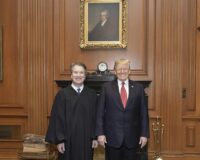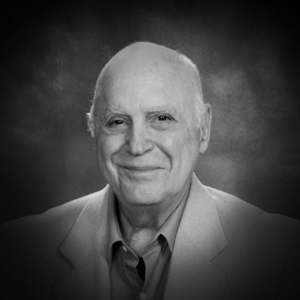When a foreigner resides among you in your land, do not mistreat them. The foreigner residing among you must be treated as your native-born. Love them as yourself, for you were foreigners in Egypt. (Leviticus 19:33-34)
Much of this post could easily apply to all countries and governments around this earth. My primary focus, however, will be on Judeo-Christians within the United States.
I previously discussed Jesus’ three-fold command to St. Peter—and through him—to us: “Feed My Sheep“. Our federal, state, and local governments have important roles in providing actual food, as well as housing, public safety, medical care, and refuge for people who legally reside in our democratic republic. Missionary efforts by Judeo-Christian residents of the United States have long supported the same policy for people residing in other nations.
Family History and Immigration
Frederico Frosolono, my paternal great-grandfather, brought his family to the United States from Italy in the later part of the nineteenth century, before immigration records were kept at Ellis Island. Frederico was a member of an international socialist worker’s organization, and he had been assigned to recruit European workers into the party, especially from France. The organization subsequently sent Frederico to recruit workers from the east cost outside New York State to Florida. Because his efforts were successful, mill owners in Montgomery, AL, reputedly had Frederico assassinated. After the assassination, Federico’s family remained in the United States, gained legal citizenship, and became contributing—and in some instances—wealthy members of our society.
This family history predisposes me to support a rational immigration policy for entry of appropriate persons into the United States—that is, persons who can contribute meaningfully to our society. I do not advocate an immigration policy that admits persons simply because they want to reside in the United States, particularly if the desire to come here is based primarily upon personal economic reasons. My family history definitely does not compel me to have any empathy for socialism.
I recognize the inconsistency in my position on immigration: Federico came to the United States to promulgate an economic system—socialism—in opposition to the prevailing capitalist system of the United States in the later part of the nineteenth century. Arguably, many people of his time would not have considered Federico a contributing member of our society. I cannot be sure, but I doubt that Federico desired to destroy the United States; I suspect he only wanted to change the economic system. Certainly, the surviving members of his family, despite whatever socialist influence Federico may have had on them, thrived under our capitalist economy and evidenced no desire to return to Italy.
Constitutional Issues
As is now typical with many of President of the United States (POTUS) Trump’s policies, his recent executive order on immigration—temporarily banning entry of persons from Syria, Iran, Iraq, Sudan, Libya, Somalia and Yemen—has created a brouhaha of the first magnitude. I am not a lawyer but I think the initial application of the ban to persons holding green cards and valid preexisting visas for students, faculty persons, and workers in high-tech industries was arguably unconstitutional and definitely unwise. The ban, even if temporary, against Iraqis and others who have materially helped our armed forces, e.g., translators, shows a regrettable disdain for persons who have helped us in the fight against Islamic terrorists.
On the other hand, my non-lawyerly opinion suggests POTUS Trump has the requisite wide-ranging authority to regulate immigration for persons who have never set foot into the United States. Importantly, potential immigrants do not have Constitutional rights until they enter the United States. We may have great empathy for refugees fleeing horrific conditions, but such circumstances in and of themselves do not necessarily qualify persons for expedited entry into the United States. While this position may seem harsh, we are a nation of laws that should not be tossed aside willy-nilly on an emotional basis. I am not against allowing refugees, regardless of their faith affiliations, into this country; however, events in the Federal Republic of Germany have shown the danger of admitting refugees without appropriate controls.
Waiting on the Supreme Court
My faith background and understanding of the Constitution warns against defining the United States as a Judeo-Christian theocracy. Great tension can arise from this position, because Judeo-Christians must first and foremost testify and witness to the reality that God, rather than any government, represents the supreme authority within creation. My perspective, therefore, is that Judeo-Christians must focus their political activities on establishing and maintaining a level playing field for all religions through rigorous application of the Establishment and Free Exercise Clauses of the First Amendment to our Constitution: Congress shall make no law respecting an establishment of religion, or prohibiting the free exercise thereof.
I understand, but do not resonate with, the legal arguments that POTUS Trump’s executive order temporarily banning entry of individuals from the seven Muslim majority countries violates the First and other Amendments. As I posited above, my belief is that individuals who have not set foot into the United States lack Constitutional standing. Yes, an argument can be made that Biblical considerations transcend the Constitution; however, this postulate represents a slippery slope to disregarding the First Amendment. We must await a Supreme Court ruling on whether the executive order violates the Constitution. Importantly, regardless of how the Supreme Court rules, we would be wise to apply and not attempt to disregard that ruling. If citizens of the United States disagree with the ruling, adequate methods exist to amend the Constitution.
Biblical Imperatives
If we wish to apply Biblical imperatives to care for refugees who have not entered the United States, we should look to providing them with safe spaces with ample food, water, medical care, etc. in their own or nearby countries. We should note that the Kingdom of Saudi Arabia—a major Muslim power—has not, to my knowledge, admitted any Syrian refugees, Muslim or otherwise. How many majority Muslim nations other than Saudi Arabia have not admitted refugees from Syria?
Military Force?
We might in some instances consider using appropriate military force to establish and secure safe spaces for Syrian and other refugees. For instance, had POTUS Obama acted resolutely when he said Syrian President Bashar al-Assad would not be allowed to cross certain “red lines” against his citizens who he claimed were terrorists, we might not be faced with such severe refugee problems as now exist. Prior to allowing Russian intervention in the Syrian conflict, our military forces could easily have neutralized the Syrian air force, which has been a major contributor to the refugee problem.
Know The Enemy
I try not to be prejudiced against Muslims per se, although my emotions often override my intellectual commitment to tolerance and acceptance. I also try to be aware of the unfortunate acts of historical violence Judeo-Christians perpetrated against Muslims, often in response to violence Muslims committed against Judeo-Christians. Even so, a rational interpretation of current events stemming from our mutual past histories shows that we are in conflict with certain segments of Islam, frequently and aptly referred to as “Radical Islamic Terrorists.” Some people believe we are now, and have been since the seventh century, experiencing a clash of civilizations between Judeo-Christianity and Islam.
I am not comfortable with describing the current status between these two great monotheistic religions as a “clash of civilizations,” and we may argue whether Radical Islamic Terrorists represent something less than an existential threat to survival of the United States. What does appear inarguable to me is that we must be very careful about admitting persons who may be suspected of adhering to radical Islam. Being careful about whom we admit as refugees does not mean we must succumb to the temptation to change the United States into a police state.
Even so, we must recognize who are our enemies, foreign and domestic, including homegrown right-wing militaristic organizations. We should be aware of letting our emotions, including fear, overwhelm our intellects. We simply cannot afford to allow our empathy for refugees to subvert our reason. I think it is highly appropriate to be extremely careful in vetting persons from the seven Muslim majority nations, as well as others who claim refugee status: How can we best discern their status as persecuted refugees rather than members of terroristic groups who also consider the United States as an enemy?










